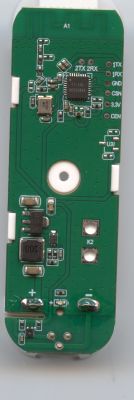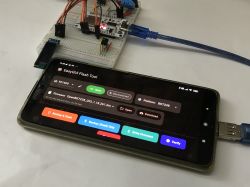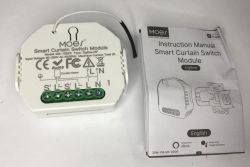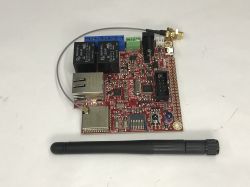I built a 4-temperature logger which creates a CSV file on an internal partition in flash for downloading via the web, the chip works in AP mode and has a small configuration via the web. It is also possible to view the graph via www and google script, I also made graphs via Ajax. Unfortunately the graph only works on the phone because the script loads from the internet, which is about 100KB. When I upload it to the internal memory and read it
.
Unfortunately I achieve about 2KB/s. Which makes the file take a minute to download. Maybe someone has some other idea?
Let's move on to the 100th issue.
I need to use an internal RTC for which I found no description in the arduino. I know it is not very accurate. I have a 32.768kHz quartz connected.
I don't have internet access, the time will be set via the web. It will be added to a CSV file to show indicatively when the measurement was.
I am writing in Arduino, ESP-IDE I have seen some elaborate example.
[/code].
Code: C / C++
Unfortunately I achieve about 2KB/s. Which makes the file take a minute to download. Maybe someone has some other idea?
Let's move on to the 100th issue.
I need to use an internal RTC for which I found no description in the arduino. I know it is not very accurate. I have a 32.768kHz quartz connected.
I don't have internet access, the time will be set via the web. It will be added to a CSV file to show indicatively when the measurement was.
I am writing in Arduino, ESP-IDE I have seen some elaborate example.
[/code].






